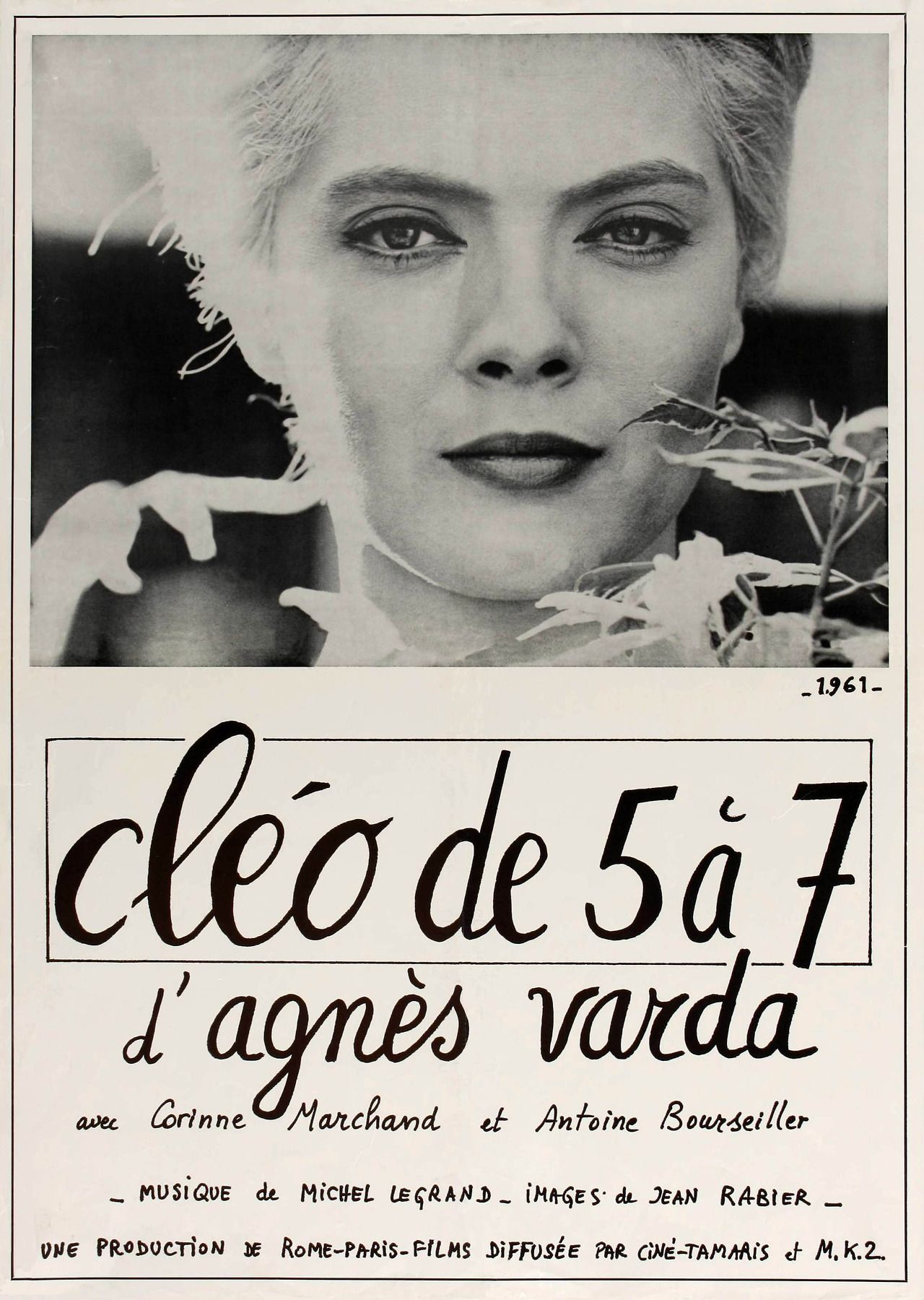Film Review: Cléo from 5 to 7 (1962)



What I find so striking about Agnès Varda’s Cléo from 5 to 7 its potential for mundanity. That’s not to say that it’s boring, because it certainly isn’t. It has an “everyday” quality to it that is inescapable and quite irresistible. It’s a film that has a definite depth, but its lead and title character, Cléo (Corinne Marchand), has anything but. Cléo wanders in and out of cafes and the lives of others as she awaits some potentially grim news. As we follow her through a few hours of what would be, under normal circumstances, a typical day, we get the sense that she has no idea who she is or what her purpose may be. With her mortality on the line, what will she learn about herself and the world?

Cléo Victoire is an up-and-coming pop star. She’s had a few singles on the radio and in the cafe jukeboxes of Paris. She’s young and beautiful, but also vapid and shallow. As the film opens, Cléo is participating in a tarot card reading. When the cards are inconclusive, Cléo asks that her palm be read. The psychic claims this is a power she doesn’t possess, and quickly shoos her away. The truth is that she did see something in Cléo’s palm, and it wasn’t good.

On this particular day, Cléo is waiting for a biopsy result. There’s a chance she has cancer, and her results won’t be in until seven. She’s nervous and scared, but she also might be seeing the life around her for the first time. Or not, and that’s the beauty of the film. We are privy to snippets of conversation in cafes and on the street. We hear them, and assume that Cléo hears them too, but does she? Is a world other than her own, in the hours leading up to the news that may end hers, creeping into this vapid and beauty obsessed young woman? Or is she simply walking right past the world as she would have on any other day?

Guess what, there’s another flipside. Maybe Cléo isn’t shallow or vapid at all. Maybe she’s playing a role, the only one she knows how to play, and the only one that will let her get ahead in life. She’s clearly intelligent enough to know that her lover is only interested in her beauty and not her brains. He, and many others, even go so far as to suggest that her illness is the result of some sort of female hysteria. How could a woman (a possession, perhaps?) as beautiful her be ill?

Cléo is facing down her mortality, but Varda never shows all the cards. At times, Cléo seems ill-equipped to handle bad news of any sort. Other times, she seems tough-as-nails, capable of taking on the world. The internal struggle is spoken of, but often in a contradictory manner. It isn’t until the end of the film when she meets Antoine (Antoine Bourseiller) in the park that she begins to truly let go. Perhaps it took all the day’s experiences to get her to that point, but surely Antoine’s shared existentialism helps. It’s as if she’s found a kindred spirit, and not one only interested in her looks or in exploiting her.

When the news is revealed, it’s done so in such a matter-of-fact way that it’s nearly shocking. Marchand delivers perfectly, and as Varda’s camera literally zooms away, the whole film suddenly makes complete sense. Cléo’s words to Antoine are just right. In the face of death, has she transformed from merely a possession into a living person of the world? You decide.
